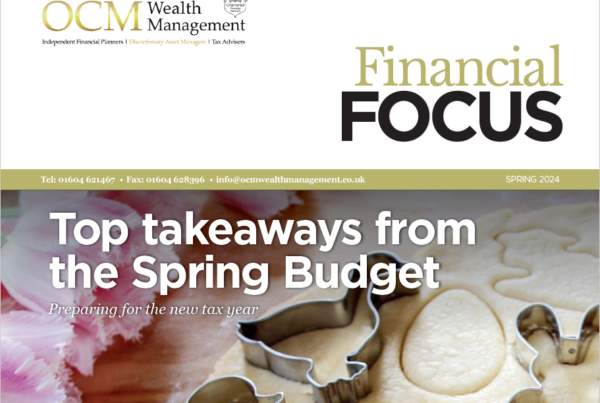Are economic recessions inevitable?
Based on the economic cycle and the nature of the global cyclical rotation, it is reasonable to assume
that economic recessions are inevitable based on the assumption of booms lead to recessions. Whilst
we are in a recovery and growth period, governments over stimulate the economy, which have a late
effect on the economy that exacerbated the depressions and recessions. For now, the global expansion
is still going strong and the world economy should grow by over 3.5% this year. However, China’s
economy is likely to slow, and economists think that advanced economies, particularly the US, will lose
momentum during 2019-20.
Like we have stressed in our previous market commentaries, we like to solely focus on the economic
data and the pure fundamentals which are continuing to be strong as we progress through this late
phase of the economic cycle and try to eradicate the “noise” which causes short term volatility and
fluctuations in valuations. Business surveys and “hard” data have improved since Q1 and they suggest
that global growth recovered to 4% annualised in the second quarter of 2018. In part, this reflected a
rebound in household spending growth in advanced economies. The outlook for consumption over the
next year or so is bright as the world continues to grow. There is still some scope for decent gains in
employment around the world, which should underpin rising household incomes, but then raises the
topic over inflation and how central bankers are going to resolve this issue with monetary policy (which
in Quantitative Easing and Interest Rates).
What’s more, wage growth is likely to accelerate. Indeed, a
rising share of firms are reporting extensive labour shortages and, at least outside of the euro-zone,
broad measures of labour market slack are at or below their pre-crisis lows. Meanwhile, inflation should
generally stay low and therefore not weigh much on real incomes. While core inflation will probably
continue to trend upwards in Japan, the euro-zone and, particularly, in the US, lower oil prices should
drag on headline inflation. Even if oil prices do not fall as is expected, and instead stay at their current
level, the contribution of energy prices to inflation in the Organisation for Economic Co-operation and
Development (OECD) economies is still set to drop by about a percentage point, on average, by early
next year.
What’s more, global households are in a much healthier state than they were a decade ago, debt service
burdens are low by past standards, banks remain willing to lend and consumer confidence is high. In the
US, disposable incomes are also receiving a boost from the tax cuts, and governments have generally
eased off from austerity in Europe. With investments, these should hold up well and within our OBI
portfolios, these remain balanced as we rotate the assets based on the economic cycle. However, by
late next year, economists think that the cumulative effect of Fed rate hikes will take its toll on the US
economy, and therefore the rest of the world. With interest rates set to peak at 2.75-3.00% in June
2019, economists think that a sharp slowdown in US growth will prompt the Fed to cut rates in 2020.
Meanwhile, growth in the euro-zone and Japan should ease back to their trend rates. Since the eurozone
and UK economies are at earlier stages in their business cycles than the US, the European Central
Bank and Bank of England are likely to be tightening policy as the Fed is cutting rates. And with weak
price pressures and a sales tax hike scheduled in Japan, their policy is likely to be unchanged for the
foreseeable future. As of 2019, the Bank of Japan should be the only major central bank still expanding
its balance sheet. GDP growth in emerging economies should ease from 4.5% this year to around 4% in
2019-20. Slower credit growth and a cooling property market should cause China’s economy to slow.
But at the same time, economists think that growth will pick up in other major Emerging Markets, such
as India, Brazil and Russia.
World trade has held up reasonably well this year. But surveys point to a sharp slowdown in trade
growth, which may reflect fears of the protectionist measures threatened so far. For now, economists
assume that the trade war will not spiral out of control and therefore will not be very damaging for the
world. Even in the extreme scenario of 25% global tariffs on all goods trade, the world economy would
probably avoid a major downturn, with global growth perhaps
For anyone who wants further data to substantiate the position please review the global economic overview.
The data above will not directly correlate to the indices as there is always a delay in pricing because the US
markets close significantly later than the European markets and the Asian markets. The data set above reflects
the last close and much of the days movements will not yet be reflected in the portfolios due to pricing delays.
You cannot therefore directly correlate indices to the portfolios. The value of investments may fluctuate in price
or value and you may get back less than the amount originally invested. Past performance is not a guarantee of
future performance. Performance figures quoted include the fund manager charges but exclude other fees such
as adviser, custodian, switch and/or discretionary investment management fees. Unless otherwise instructed
and accrued, income is reinvested into the portfolio.
This Day in History
On this day in 1911, the Peruvian mountaintop’s ancient city, Machu Picchu, was discovered and found.
Machu Picchu is a 15th-century Inca citadel situated on a mountain ridge 2,430 metres above sea level.
It is in the Cusco Region, Urubamba Province, Machu Picchu District in Peru, above the Sacred Valley,
which is 80 kilometres northwest of Cuzco and through which the Urubamba River flows.
As always have a wonderful week and stay safe.
VBW
Jason

